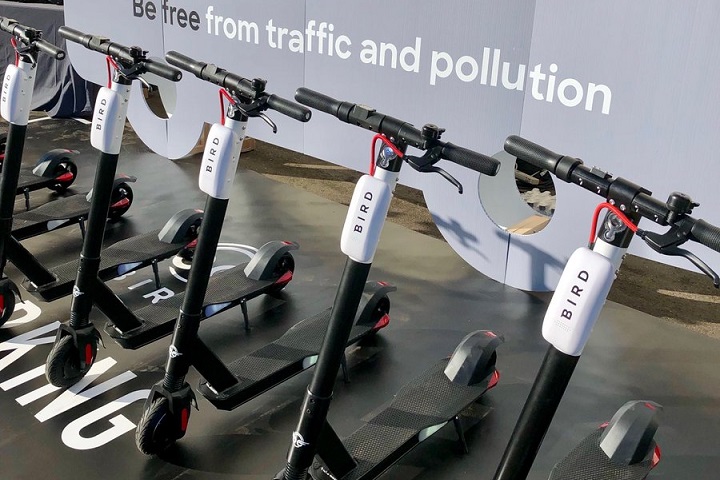
Image: Bird
New regulations allowing trials of rental e-scooters on UK roads will come into force on 4 July, the Government has confirmed.
The fast-tracked trials, which are due to last 12 months, are designed to help the Government assess the benefits of e-scooters – in particular their impact on public space, motor traffic, the environment and safety.
They have been launched in a bid to ease pressure on public transport during the Covid-19 pandemic.
Throughout the trials, the use of e-scooters will be strictly prohibited on pavements – while devices will be limited to 15.5mph and riders recommended to wear helmets.
Users will need a full or provisional car, motorcycle or moped licence to take part in the trials, and must be aged 16 years or over.
Privately owned e-scooters will not be legalised.
The Government hopes the first rentable e-scooters will be up and running from early next week.
Rachel Maclean, transport minister, said: “As we emerge from lockdown, we have a unique opportunity in transport to build back in a greener, more sustainable way that could lead to cleaner air and healthier communities across Great Britain.
“E-scooters may offer the potential for convenient, clean and cost-effective travel that may also help ease the burden on the transport network, provide another green alternative to get around and allow for social distancing.
“The trials will allow us to test whether they do these things.”
Under previous UK law, it was illegal to use a powered transporter – such as an e-scooter – on a public road or other prohibited space, including pavements and cycle lanes.
However, the Government has been contemplating change as part of its push towards greener travel – and in March, announced a consultation on their legalisation would take place.
In May, secretary Grant Shapps announced fast tracked trials of e-scooters would start this summer, as part of the Government’s transition out of lockdown restrictions.
E-scooters are controversial, with the National Federation of the Blind UK (NFBUK) warning they contribute to a ‘dangerous, frightening, intimidating and hostile’ urban environment.
Comment on this story